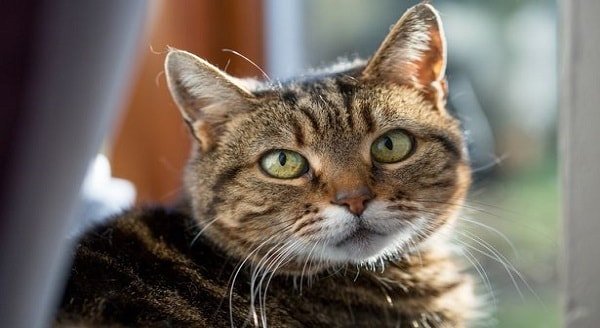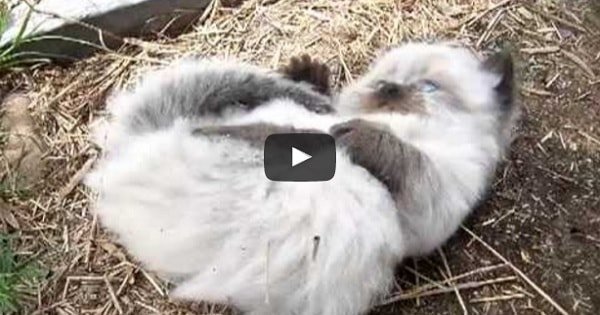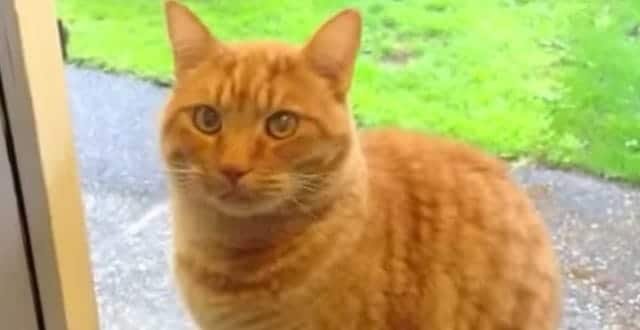BEAL, NORTH YORKSHIRE, UK – Coal-mining Cats Find New Employment After Pit Closure in UK
Four colliery cats who were recently unemployed felines after the UK’s last deep coal pit closed have started new careers.
Feisty Florence, Betty, Leia and Sola, were the very last working animals in a British coal mine when Kellingley Colliery closed last month.
The once feral gang, who were left in great condition after being “spoilt” by miners over the years, were directly responsible for vermin control.
In exchange they were given board and lodgings right at the mine in Beal, North Yorkshire.
But when the pit closed last month they faced losing their jobs and also their home.
Concerned miners contacted the York Cats Protection – Adoption Centreto ask for help with finding them a new home.
And now one month following the closing of the pit, all four have started new careers on nearby farms.
Their relocation, which was carried out in pairs, literally marks the end of an era.
- Moggy mates: Betty was rehomed to Karen Scholey at her family’s farm near Green Hammerton, Yorkshire, along with Florence
- Cat’s whiskers: Florence has been given a new home in Yorkshire with her old mate Betty
- Out of work: Leia was one of the last working animals in a British coal mine when Kellingley Colliery closed last month
- Fresh start: Leia has settled in to her new home with Solo at Amanda Beal’s livery farm
- Carry on: James said the charity received a call in December from a former miner
- Managing moggies: Cats Protection’s York Adoption Centre Manager James Hodgkison is helping the cats
The mining industry has a long history of using working animals such as pit ponies and also canary birds.
Cats were originally drafted into mining to keep pony stables clear of mice and rats.
Cats Protection’s York Adoption Centre Manager James Hodgkison said the charity received a telephone call in December from a former miner who was concerned about the future of the colliery cats.
He said: “Feral cats are those which never received sufficient human contact as kittens and as such are not tame.”
“While they are not domesticated, they are highly valued by farmers, smallholders or industrial settings like collieries as they provide an excellent rodent control service.”
“The four cats at the Kellingley Colliery were very much valued by workers for keeping rodents in check.”
“They had been well cared for by the miners who had provided food, water and shelter, and they were in great condition.”
James added that after receiving the call, Cats Protection used humane traps to capture the cats before finding them new homes in rural settings.
He said: “We can’t tell exactly how old they all are, but they had lived for a few years at the pit.”
“We have no doubt they will continue to work their socks off in their new homes, and we’re just pleased we were able to help.”
Florence and Betty were rehomed to Karen Scholey at her family’s farm near Green Hammerton, Yorkshire.
They were named after miners’ wives Florence Anderson and Betty Cook, who took a prominent role during the 1984 strikes.
Amanda Beal, who named the two cats she adopted Leia and Solo, said both cats are settling in well.
She said: “Solo is most definitely very feral and we don’t see much of her – she’s busy keeping the mice under control.”
“But Leia very quickly decided that she likes some creature comforts and moved into the house.”
“She is very nervous but enjoys human company so she must have been well looked after during her time at the pit.”
Cats Protection is the UK’s largest cat charity, helping more 205,000 cats every year through a network of over 250 volunteer-run branches and 32 centres.















